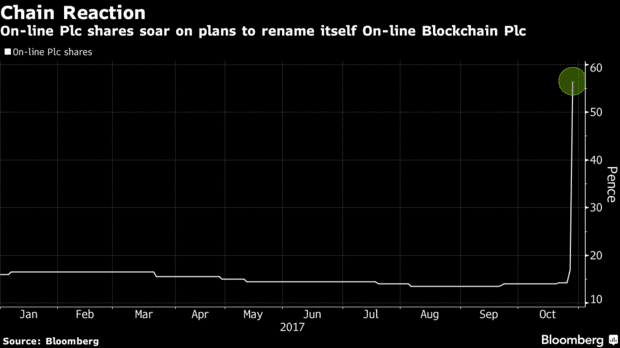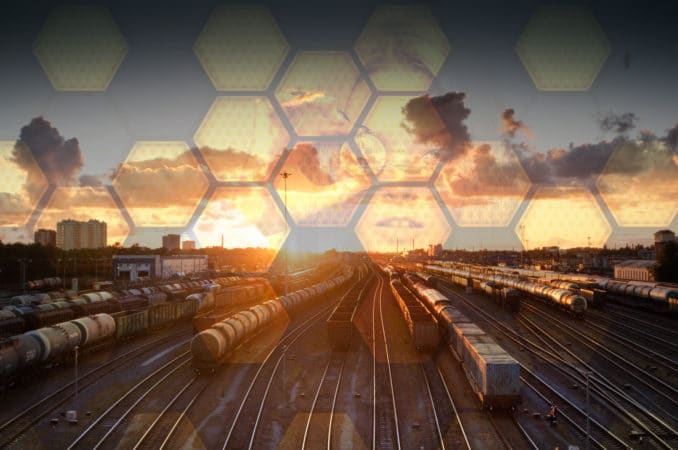Supply chain and logistics are industries in need of real change. Blockchain startups have continued to pop up over the last few years to challenge existing companies with their mostly inefficient logistical practices. Cryptocurrency projects like VeChain Thor and Waltonchain are leading this blockchain logistics initiative. VeChain is looking to capitalize on an already two year lead in the blockchain logistics space.
As a result, existing companies are scrambling to jump on board the blockchain train (as it were) before these competitors get too much of a head start. Many in the industry believe that these old and stagnant systems need to be overhauled for the sake of safety, simplicity and well, just good old cost savings.
To get an idea of a typical out of date logistics process, take a look at the following video:
Don’t worry, if this confused the heck out of you, you weren’t the only one! Enter blockchain, a chance for technology to really simplify time-consuming processes like this. But is the potential of blockchain logistics all it’s cracked up to be? Let’s explore a little bit.
Industries in Flux
A number of established companies have already indicated their interest in using blockchain technology to improve their outdated supply chain processes. Giants from General Electric to De Beers and Samsung currently have blockchain projects in development.
Industries from Shipping to Diamonds to Food and Electronics are all targets of blockchain disruption. Technology is knocking at the door and adoption is very often the difference between staying relevant or being left behind. Here are a few logistical industries dipping their toes in the blockchain waters:
 Shipping
Shipping
In March (2018) GE Transportation announced that they will be joining the Blockchain in Transport Alliance. BiTA is a trade association for blockchain education and standards in the transportation and logistics industry. Monica Caldas, Chief Information Officer for GE Transportation had this to say about the collaboration:
“As a company, we’ve defined what it means to be a digital industrial leader – employing these technologies first internally to drive productivity and then applying those learnings for our customers’ benefit as well”
GE Transportation supplies equipment and services to the rail, mining, marine, stationary power and drilling industries. They plan to assist BiTA in developing a blockchain shipping framework for the industry.
 Pharmaceutical
Pharmaceutical
The pharmaceutical industry loses an estimated $30 billion a year due to fake drugs. Blockchain has the potential to combat counterfeit drugs by accurately tracking assets as they move through the logistics chain. Certainly, an unchangeable ledger used by companies in the space would provide a better degree of transparency and traceability.
 Food
Food
One of the main benefits of blockchain in the food industry is finding the source of contaminated foods. 2018 Saw a breakout of Listeria in a number of countries worldwide. In a more recent incident in Europe in which 11 people died, the UK Food Standards Agency traced the contamination to a plant in Hungary. However, the source of the contamination remains unclear.
A blockchain based system could have potentially avoided such an incident. It appears that cryptocurrency tech is setting the bar high and aiming to keep you safe one bite at a time.
 Diamonds
Diamonds
In May (2018), diamond corporation De Beers successfully tracked its first diamonds through the supply chain from mine to retail. A blockchain platform called Tracr followed 100 diamonds as they moved from mine to cutter, polisher and finally to a jeweler. De Beers plans to launch the platform in late 2018 and claims it will be open to the diamond industry.
The company has a fairly negative reputation due to its diamond market monopoly which it held up until the 21st century. De Beers hopes that Tracr will provide consumers with some comfort that the diamonds they buy are natural and conflict-free.
 Electronics
Electronics
And in Asia, electronics giant Samsung is considering blockchain solutions to track global shipments. The world’s foremost producer of smartphones and semiconductors predicts that crypto tech could save as much as 20% of all shipping costs. In addition, an efficient blockchain system could help the company drastically reduce the time needed to ship goods after product launches.
Some of the Benefits
Reduced Paperwork
In a globalized world, suppliers, shippers, brokers, and other logistics professionals must use a variety of systems throughout the transport process. Many of these systems still require large amounts of paperwork to be signed, sent and filed in and to a number of different locations around the world.
Blockchain logistics could simplify this process within a single system (or several smaller systems) which record and track assets as they move through the chain. And all without the need for large amounts of unnecessary paperwork.

Recently a consortium of several organizations including AB InBev, Accenture, Kuehne & Nagel as well as others tested a blockchain solution in the ocean shipping industry. Real shipments were used and the group concluded that blockchain maritime solutions reduce the need for printed shipping documents by up to 80%. As a result, those kinds of savings would really reduce our impact on the environment.
Monitor Supplier Performance History
Companies will be able to track the past history of suppliers and carriers of their goods which includes things like the timely pickup and delivery of shipments. This kind of system of accountability should keep the level of service high and customers at all points of the supply chain happy as suppliers and carriers compete for good levels of service.
Monitor Freight Capacity in Real-Time
In fast-moving transport sectors like trucking, freight capacity can change on an hourly basis. Monitoring these changes and sending newly available resources to needed areas will only boost productivity in the long run.
Additional Benefits
We’ve only explored 3 meaningful benefits here that blockchain could bring to the table. Some other interesting features include:
- Streamlined settlement of payments
- Fraud detection
- Smart contract implementations
Potential Issues
Industry Marketing Tactics
Blockchain is a buzzword which a number of businesses currently toss around rather carelessly. While it certainly holds a lot of promise for the industry, we first need to see some real-world applications which take advantage of blockchain tech.
There is a widespread business practice (not only in logistics) for companies to promote their use of blockchain on social media and other marketing channels. Some companies have gone so far as to place blockchain in their name most probably as a marketing gimmick to boost their share price.

Trust is Still a Problem
Much of the proposed benefits in logistics are built around the idea of RFID (radio frequency ID) and other forms of tracking. There are a few very serious issues with this approach:
- Product tracking
- Privacy
How do you prevent an employee from placing a tag in error? Furthermore, how do you prevent an unhappy or malicious employee/executive from fraudulently placing a tag? Or swapping a tag at an opportune moment somewhere in the supply chain. This weakness doesn’t technically lie with the blockchain. The weak point, as usual, lies with humans.

Companies may decide to integrate chips securely inside of products to prevent unknown players tampering with them. But if this happens well then, the question of privacy comes up.
It’s a classic catch 22 situation. If tags are too easily removed during transport, can we really trust their security and authenticity? If tags are not removed, does this mean that companies will have the ability to track our movements via their products? You can see how this issue wouldn’t go down well with the public at large and most certainly several regulators.
Who Develops the System?
Finally, despite claims of decentralization, we have to ask importantly which company gets to develop a logistics blockchain? Will a company with the most resources or developers take the lead? Will the developers be located in one place or collaborate internationally? Robust blockchains like that of bitcoin work exactly because power is not concentrated in the hands of a few. Can we really put our trust in a blockchain where 1 or 2 executives at major companies get to make all the decisions?
Final Thoughts: Blockchain Logistics
Much of the proposed “innovation” towards blockchain technology is being spearheaded by large established corporations with highly centralized structures. It’s highly unlikely that companies like General Electric, De Beers or Pfizer will want to voluntarily decentralize their networks. Doing so would probably hurt their profits. They’ve built up powerful corporations exactly because dominant business practices create the greatest profits.
Unfortunately, this remains largely at odds with the very definition of blockchain. Satoshi Nakamoto’s vision for Bitcoin was an open, distributed, decentralized network that was widely available to all network users. Permissioned distributed ledgers, as the phrase goes, may be of tremendous value to these companies. The jury is still out whether open ledgers will.
A lack of transparency for those outside the inner circle might cause customers to take their business to truly decentralized networks of the future. Let’s hope that established players in the logistics and supply chain industry are working to improve services for everyone. If not, they may find themselves extinct in a few years by the hands of blockchain logistics startups. Regardless of the risks, blockchain is certainly shaking things up.
[thrive_leads id=’5219′]
Never Miss Another Opportunity! Get hand selected news & info from our Crypto Experts so you can make educated, informed decisions that directly affect your crypto profits. Subscribe to CoinCentral free newsletter now.










